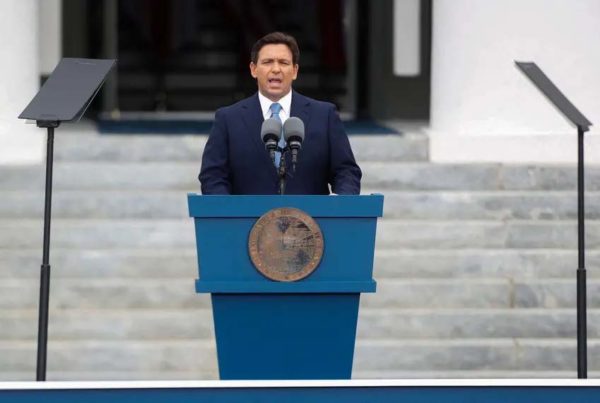With the market in its current state, should we expect to see an impact at the pump?
Texas Standard spoke with lead oil analyst for the Americas at Kpler, Matt Smith, to find out what’s going on. Among the factors: sanctions on Russian-refined products kicking in, jobs numbers and energy prices and U.S. natural gas dropping to around a two-year low. Listen to the story above or read the transcript below.
This transcript has been edited lightly for clarity:
Texas Standard: So sanctions on Russian-refined products kicked in yesterday. I would imagine petroleum prices would be charging higher. At last check, they don’t seem to be. What’s going on?
Matt Smith: Yeah. And so we’ve seen prices move lower in the last few weeks, really, even though they’re getting a little bit of a bump so far today. But you’ve hit the nail on the head in terms of why they’re not moving higher, because it makes sense they would. But sanctions have kicked in on Russian products now. But similar to what we saw with the crude flows, Russian exports are just being rerouted to countries that aren’t applying sanctions on them.
So, for example, with crude, we now see the majority of that Russian waterborne crude heading to India and China. But with the refined products, we’re starting to see a pickup of those flows heading to Africa and Latin America, while Europe is looking to backfill that Russian supply from the likes of the Middle East and the U.S., as well. But the kicker is in volumetric terms, nothing has changed. There is still the same amount of supply hitting the market and the price caps similar to crude natural gas are largely going to be irrelevant and ineffective.
When we saw some remarkable job numbers on Friday, I think unemployment was at its lowest level in more than 50 years. And I think that surprised a lot of folks. Interestingly enough, energy prices in equities all move lower. Now, I know it’s hard to read those tea leaves, but what do you make of that?
Yeah, it does seem like such an odd reaction. But I guess the logic is that the stronger the economic data we have coming out, the more likely that the U.S. central bank, the Federal Reserve, is going to keep raising interest rates as it primarily targets quelling inflation over everything else, essentially. So while the numbers were great at first blush to your point, 3.4% on unemployment, it was the lowest since like the end of the Swinging Sixties there. And so it just means that we’ve got more interest rate hikes to come, which will ultimately slow the economy down.
So the bet, I guess among people who are placing them, is that people won’t be able to afford some of these commodities unless those prices stay lower. That’s going to affect demand, essentially, right?
Yeah, the interest rate hikes will just serve to slow the economy, but they will quell inflation, which is the main target. But it just means, you know, borrowing is going to be hard. The economy is just going to slow down somewhat because of that.
I see. But now, not only are we seeing somewhat weaker oil prices, but the price of U.S. natural gas just dropped to something like, what is it, a two-year low?
Something like that, yes. $2.50 in MMBtu – we’ve dropped below that. And that’s been a combination of factors, but not the same ones that have influenced oil. So, you know, we’re moving out of the worst parts of winter here because of strong heating demand. And although it’s been a rough week in terms of temperatures for Texas, you know, over the last week, the outlook for weather across the U.S. is looking warmer than normal into the second half of February.
At the same time, too, natural gas storage is looking great. It’s 9% higher than it was this time last year and up 7% versus that kind of historical normal level. But then thirdly, and this is super interesting, is that European prices have plummeted, which is having a bearish effect on U.S. prices because as the U.S. increasingly becomes a leading global exporter of natural gas, U.S. prices become increasingly linked to global price movements.















